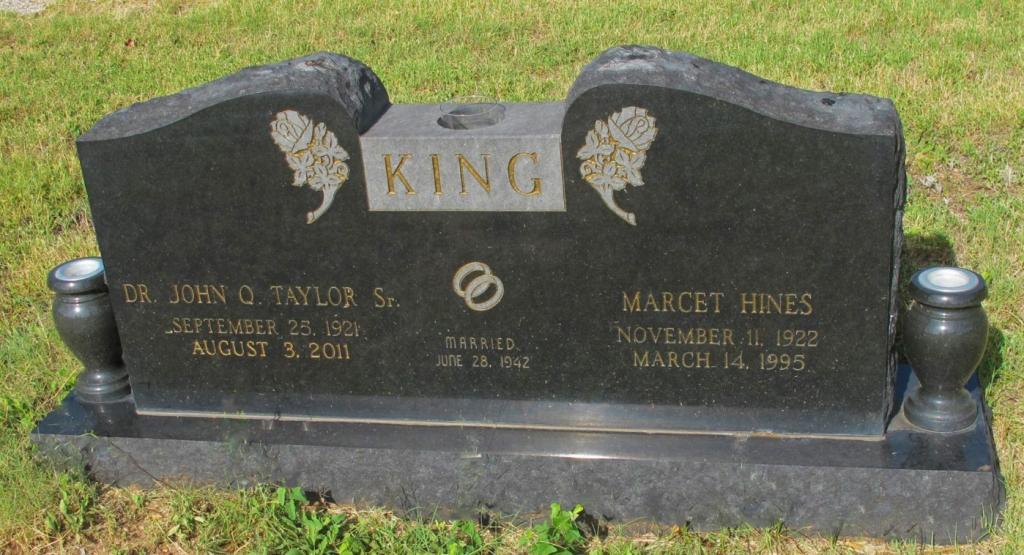Dr. John Quill Taylor King, Sr.
Dr. John Quill Taylor King, Sr. was initially born in Memphis, Tennessee in 1921.
After his mother remarried following his father’s passing in 1923, his family moved to Austin and opened the King Funeral Home, which was later merged with the Tears Mortuary in 1955.
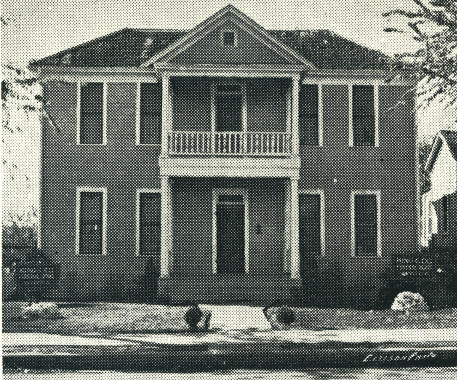
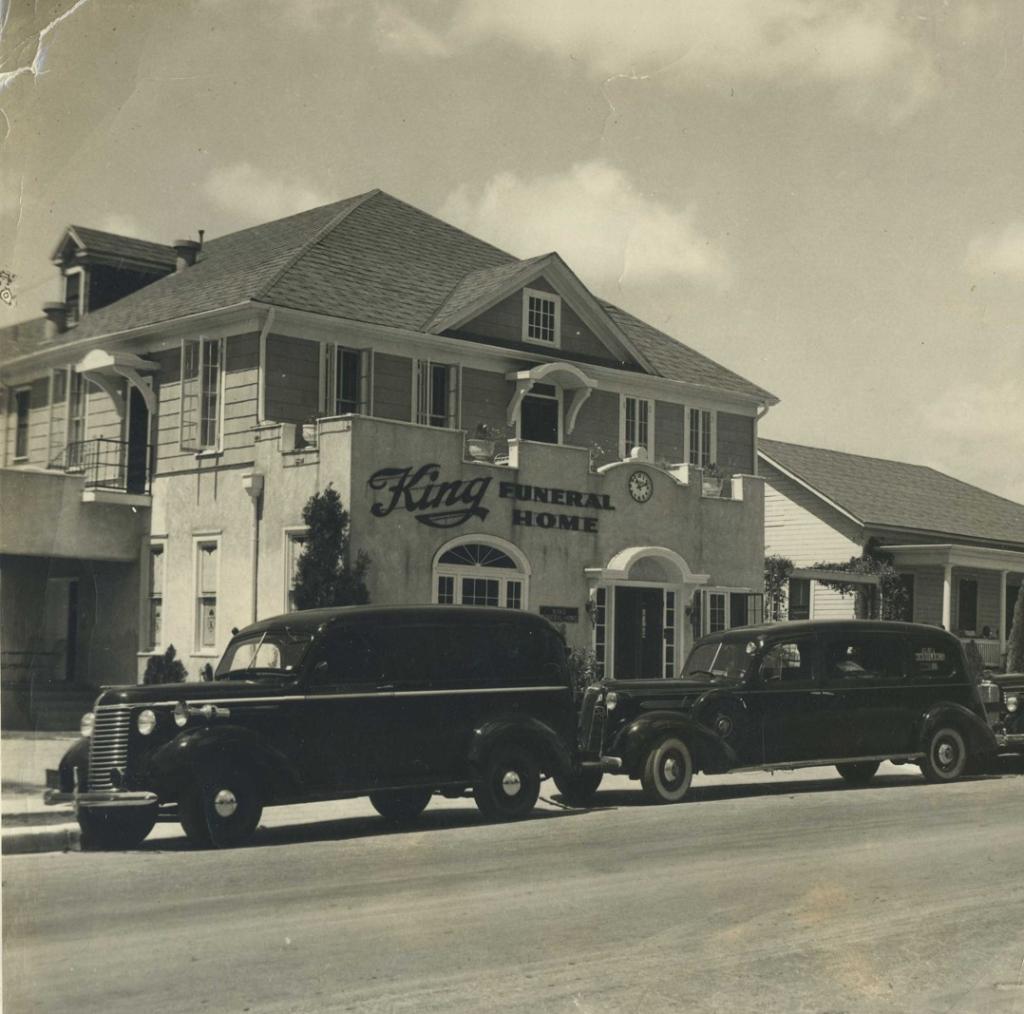
First and second locations for King Funeral Home, courtesy of Austin History Center
He attended the Gregory Town School (now Blackshear Elementary School) and then graduated from L. C. Anderson High School at the age of fifteen. Going on to earn his bachelors in mathematics from Fisk University in Nashville, TN and then returning to Texas in 1941 attending the Landig College of Mortuary Science in Houston.
With the onset of World War II Dr. King was drafted in December of 1941 and though he began his service as a private, he was promoted to second lieutenant and then captain in 1943. In 1946 he left active military service and became a member of the U.S. Army Reserve, rising to the rank of major general. Soon after he retired from the reserves, where he had been assigned to the Pentagon, he was appointed lieutenant general in the Texas State Guard by the Texas Governor.
He left active military service in 1946, but remained a member of the U.S. Army Reserve where he rose to the rank of major general. His reserve assignment was in the Pentagon and two years after he left reserve service in 1983, he was appointed a lieutenant general in the Texas State Guard by the governor of Texas.
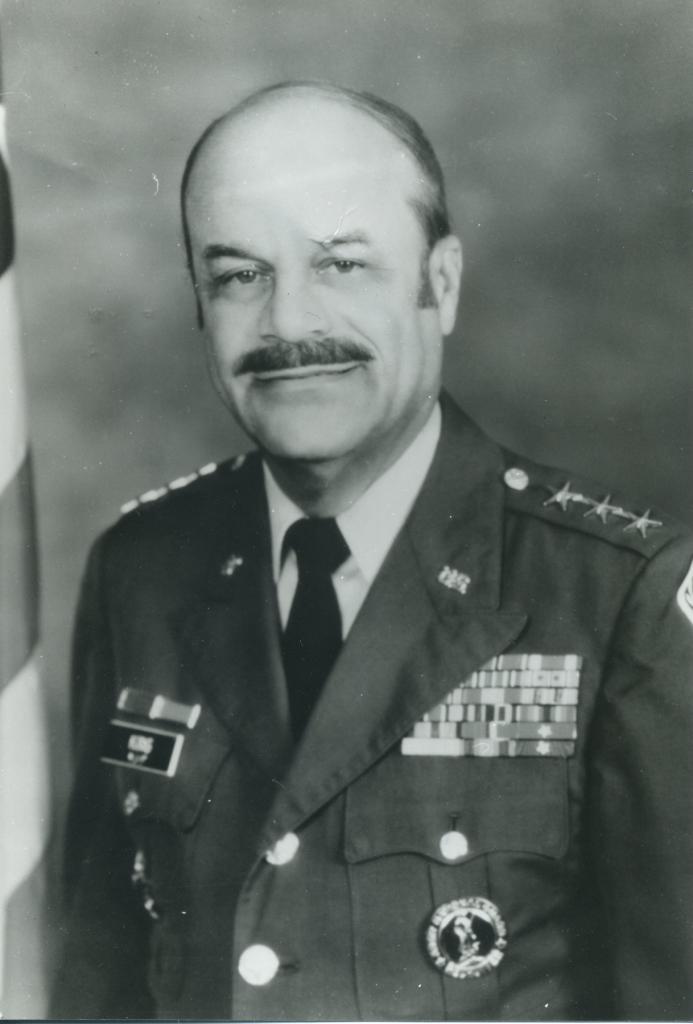
Military picture of Dr. King courtesy of the Austin History Center
After he left military service he returned to college, this time remaining in Austin and attending Samuel Huston College and earning another bachelor's degree, in mathematics this time. He then began teaching mathematics and business administration while continuing his education further and completing his graduate degree with DePaul University in Chicago in 1953 and then his Ph.D. in mathematics and statistics with the University of Texas in 1957. During this time he remained at Samuel Huston College (and then Huston-Tillotson College after they merged with Tillotson College in 1952) for 41 years where he began as a professor, was appointed dean, and then became the college’s president in 1965. And even after he retired in 1988 he was made president emeritus and continued his work at the college as director and chairman of the Center for the Advancement of Science, Engineering, and Technology, a research branch of the college.
During this time Dr. King also worked with renowned Black folklorist and author John Mason Brewer (actually buried near Dr. King in Evergreen Cemetery) who was chairman of the Department of English Language and Literature at Samuel Huston College.
In 1948 he became a contributor for Brewer’s collection of short stories that he put together called Silhouettes of Life and then a coauthor on books he wrote with his wife called Stories of Twenty-three Famous Negro Americans (1967), Famous Black Americans (1975), and Mary McLeod Bethune: A Woman of Vision and Distinction (1977). This was in addition to all of the articles he wrote for different professional and religious journals.
While he was there, he made his mark on more than just the students and curriculum. He was extremely skilled in fundraising and raised $4.9 million for Huston-Tillotson during his time there, and at one point he even took out a second-lien mortgage on his family home in order to meet payroll for the school.
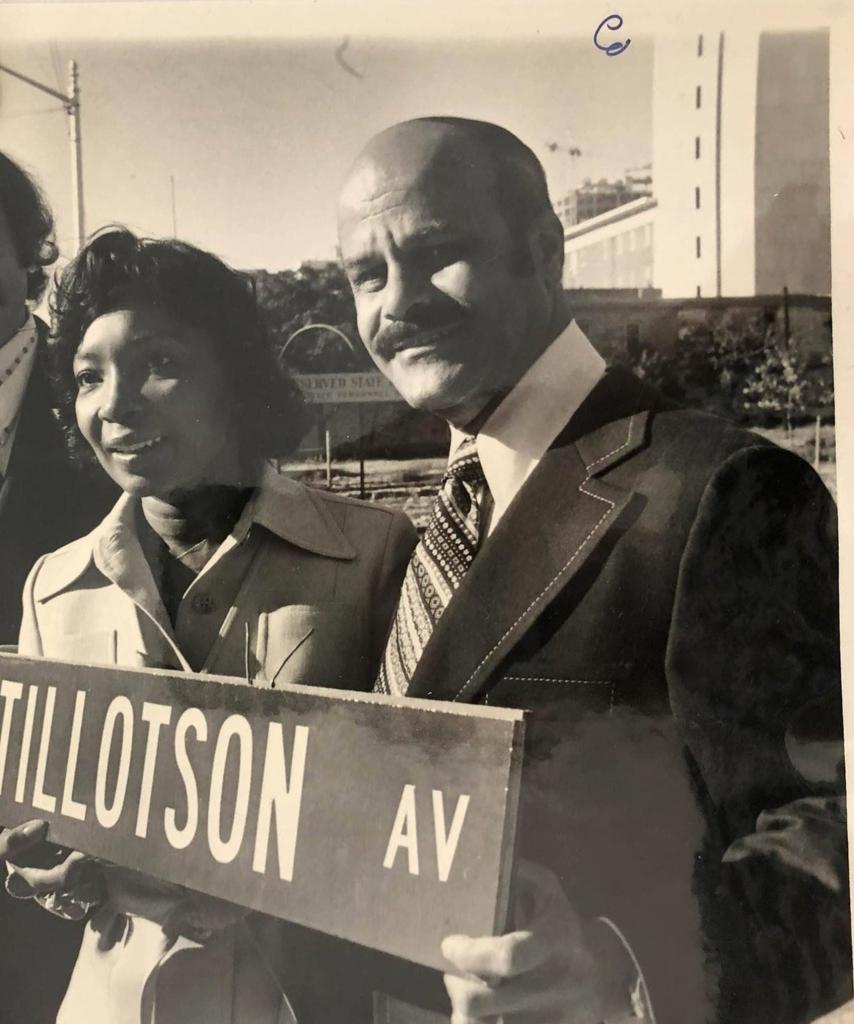
JQTKing posing with Huston-Tillotson Av sign, courtesy of Austin History Center
His investment in the students and his community was abundantly clear. He would invite students who did not go home for holiday breaks over to his own home to share the holiday with his family so that they did not spend Christmas or Thanksgiving alone. He served as a delegate to each of the General and Jurisdictional Conferences of the United Methodist Church from 1956 until 1988, and he was president of the General Council on Ministries of the United Methodist Church from 1972 to 1980.
By the end of his life, King had been awarded honorary doctorate degrees by Southwestern University (Doctor of Laws, 1970), St. Edwards University (Doctor of Laws, 1976), Austin College (Doctor of Humane Letters, 1978), Fisk University (Doctor of Humane Letters, 1980), and Huston-Tillotson College (Doctor of Science, 1988).
He held a Phi Beta Kappa key, was a life member of Alpha Phi Alpha fraternity, a member of Sigma Pi Phi and Phi Delta Kappa fraternities, and a member of Epsilon Nu Delta mortuary fraternity, as well as a Mason, and a member of the Philosophical Society of Texas.
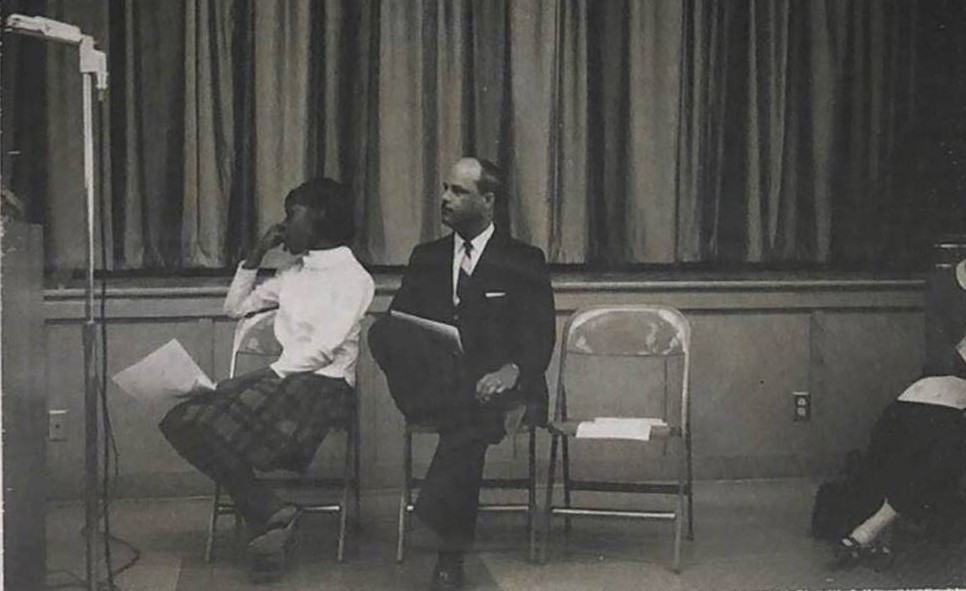
Photo courtesy of the Austin History Center
King received the Carl Bredt Award from the University of Texas College of Education; the Brotherhood Award from the National Conference of Christians and Jews; the Distinguished Service Award from Texas Lutheran College; the Roy Wilkins Meritorious Award from the NAACP; the Arthur B. DeWitty Award from the NAACP; the Martin Luther King, Jr. Humanitarian Award; the Frederick D. Patterson Award; the Minority Advocate of the Year Award from the Austin Chamber of Commerce; the Military Education Award from the San Antonio League of the National Association of Business and Professional Women’s Clubs, Inc.; the Whitney M. Young, Jr. Award from the Austin Area Urban League; the 1990 Distinguished Alumnus Award from the University of Texas at Austin; the 1991 Philanthropist of the Year in Austin Award from the National Society of Fundraising Executives, Austin Chapter; and the 1994 Man of the Year Award from the Independent Funeral Directors of Texas, Inc. And, the King-Seabrook Chapel at Huston-Tillotson University was named in his honor.
Listed in Who’s Who in America, Who’s Who among African Americans, Leaders in American Science, and Leaders in Education
He was a member of the board of directors of the Austin Regional Advisory Board, Texas Commerce Bank, and the Austin Chapter of the National Conference of Christians and Jews, and a chairman of the Lone Star District, Capital Area Council, and the Boy Scouts of America.
He served as director and secretary of the Foundation for Insurance Regulatory Studies in Texas, chairman of the Austin Civil Service Commission, trustee of Austin College, and trustee of Fisk University.
King died in Austin on August 3, 2011, at eighty-nine years of age and is buried at Evergreen Cemetery.
